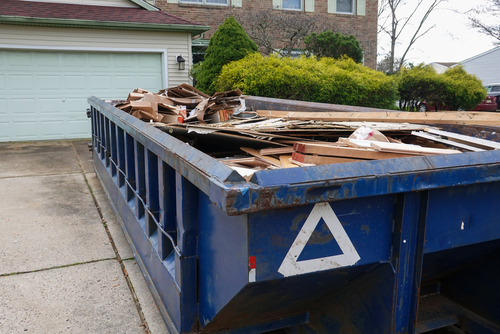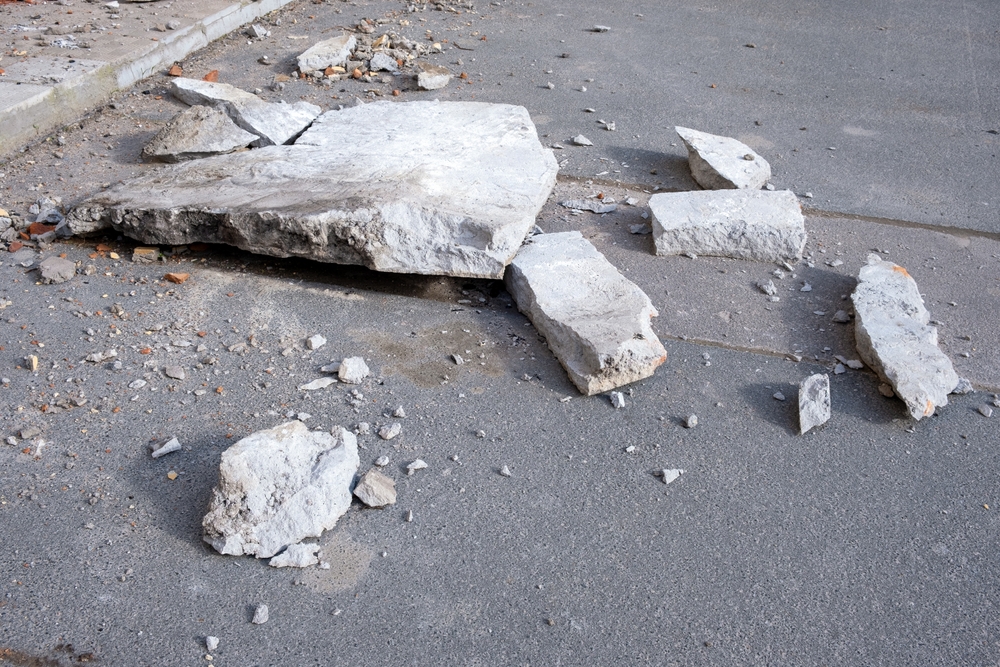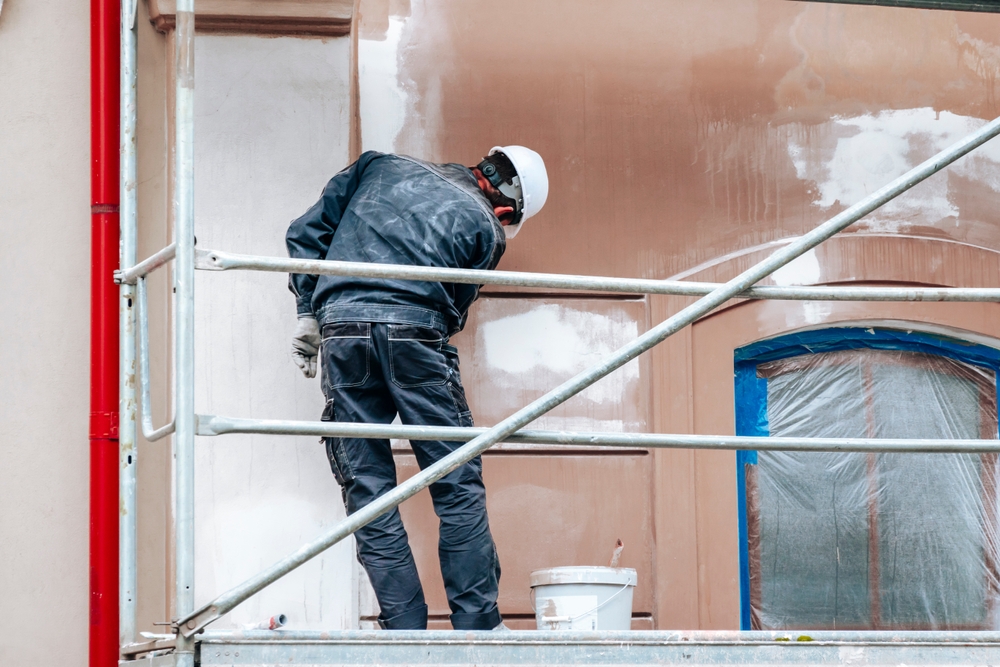April 23, 2024 - Benjamin Ehinger
Where Can I Dump Wood for Free? Locating No-Cost Disposal Sites
CALL NOW 844-762-8449
Disposing of wood can sometimes feel like navigating a labyrinth, especially if you’re aiming for a cost-effective and eco-friendly method. You might have a pile of old lumber from a DIY project, branches from yard cleanup, or even remnants from construction work. The good news is that you have several options for offloading your wood waste responsibly. If you’re tackling a larger project, considering a dumpster rental from Waste Removal USA can streamline the process, catering to both convenience and volume needs.
Regulations and safety measures play a critical role in wood disposal. It’s important to be informed about your local facility’s policies regarding wood waste to ensure compliance and safe handling. Recycling wood is often a favored approach, as it reduces landfill waste and can contribute to the production of mulch or other recycled wood products. Seeking out wood recycling facilities or community programs that accept wood donations can be a sustainable choice, keeping both the environment and your wallet intact.
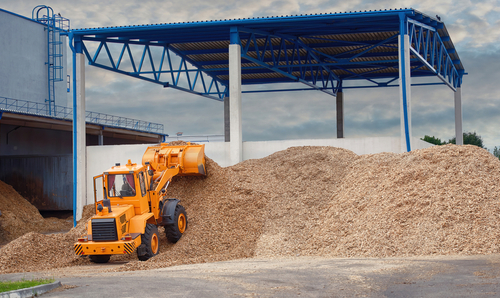 When considering disposing of wood for free, recycling is a sustainable option that can turn your waste into a valuable resource. Recycling centers and transfer stations are primary facilities that process wood for recycling, and preparing your wood correctly can improve its recyclability.
When considering disposing of wood for free, recycling is a sustainable option that can turn your waste into a valuable resource. Recycling centers and transfer stations are primary facilities that process wood for recycling, and preparing your wood correctly can improve its recyclability.
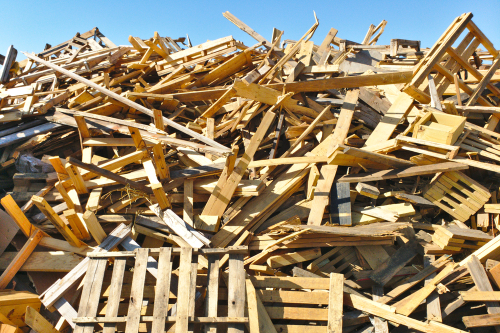 Before you decide to dump wood for free, it’s crucial to understand the local disposal regulations and adhere to safety guidelines for handling wood. You need to know where landfills are located, their acceptance policies for wood waste, and specific safety practices to protect yourself during the disposal process.
Before you decide to dump wood for free, it’s crucial to understand the local disposal regulations and adhere to safety guidelines for handling wood. You need to know where landfills are located, their acceptance policies for wood waste, and specific safety practices to protect yourself during the disposal process.
Key Takeaways
- Utilize cost-effective and eco-friendly methods to dispose of wood, such as recycling or community programs.
- A dumpster rental can effectively handle wood waste for larger projects.
- Always adhere to local regulations and safety measures when disposing of wood.
Understanding Wood Waste
When considering where to dump wood for free, it’s essential to recognize the different types of wood waste and the environmental implications of wood disposal. Your choices can significantly affect your carbon footprint and the well-being of the planet.Types of Wood Waste
Wood waste falls into several categories, often defined by its source and condition:- Yard Waste: This includes branches, leaves, and debris from your garden.
- Untreated Wood: Natural wood that hasn’t been chemically treated, such as logs and lumber off-cuts.
- Treated Wood: Wood treated with preservatives, paints, or stains to prolong its life.
- Painted Wood: Wood that has been painted, which can contain toxic chemicals if not disposed of correctly.
- Construction and Demolition Waste: Wood materials generated during the construction or demolition of buildings.
Impact of Wood Disposal on Environment
The method you choose to dispose of wood waste can have significant environmental consequences:- Landfill Space: Wood waste can occupy valuable landfill space, contributing to overfilled disposal sites.
- Toxic Chemicals: Treated and painted wood can release harmful substances into the environment.
- Carbon Footprint: Incorrect disposal of wood waste can increase the carbon footprint of your activities.
Recycling Options for Wood
 When considering disposing of wood for free, recycling is a sustainable option that can turn your waste into a valuable resource. Recycling centers and transfer stations are primary facilities that process wood for recycling, and preparing your wood correctly can improve its recyclability.
When considering disposing of wood for free, recycling is a sustainable option that can turn your waste into a valuable resource. Recycling centers and transfer stations are primary facilities that process wood for recycling, and preparing your wood correctly can improve its recyclability.
Recycling Centers and Transfer Stations
- Recycling Centers: You’ll find these facilities often accept wood waste, which they subsequently process and convert into recycled wood products. The processed wood can become a variety of new products, such as engineered lumber or mulch for landscaping. A locator map can help you find your nearest wood recycling facility or designated wood dump area.
- Transfer Stations: As intermediaries, transfer stations collect and sort various recyclable materials, including wood. Here, wood is often separated from other materials, making the recycling process more efficient. Many transfer stations are equipped to handle lumber scraps, which can then be transported to specialized recycling centers.
Sorting and Preparing Wood for Recycling
- Collection: Your local waste management system might offer curbside pickup for wood recycling. You should contact them to learn about any particular sorting rules, as proper sorting is critical for recycling effectiveness.
- Preparation: Before taking your wood to a recycling center or having it picked up, ensure it is free from contaminants such as nails or adhesives that could interfere with the recycling process. Some centers may also require you to sort the wood by type—for example, untreated versus treated lumber.
Alternatives to Dumping
In exploring options beyond traditional waste disposal, you’ll find eco-friendly and community-supportive ways to handle excess wood. Whether it’s leftover building materials or furniture, there are avenues available that prevent waste and can provide benefits to others.Donation and Reuse
- Building Materials: Local charities and non-profits, such as Habitat for Humanity ReStores, actively welcome donations of usable building materials, including plywood and wood from deconstruction projects. Your contributions could help support affordable housing while reducing landfill waste.
- Furniture: Reach out to thrift stores and community centers. They might accept wooden furniture in good condition, which they could then sell or directly use. Consider schools or theaters that often need set pieces and could repurpose your old furniture creatively.
Wood Repurposing Initiatives
- Architectural Salvage: Entities dedicated to salvaging architectural elements can give your old wood a new life in restoration projects. These organizations recover and repurpose components with historical value.
- Renewable Energy: Some companies collect wood pallets and other untreated wood waste for conversion into renewable energy. This process decreases reliance on fossil fuels and helps to recycle materials more sustainably.
- Junk Removal Services: Certain services offer eco-friendly removal options—and in some cases, at no cost—if your wood is salvageable. They may distribute the wood to those who can use it for projects or fuel.
Regulations and Safety Measures
 Before you decide to dump wood for free, it’s crucial to understand the local disposal regulations and adhere to safety guidelines for handling wood. You need to know where landfills are located, their acceptance policies for wood waste, and specific safety practices to protect yourself during the disposal process.
Before you decide to dump wood for free, it’s crucial to understand the local disposal regulations and adhere to safety guidelines for handling wood. You need to know where landfills are located, their acceptance policies for wood waste, and specific safety practices to protect yourself during the disposal process.
Local Disposal Regulations
Landfills have specific policies regarding the acceptance of wood. Some may allow you to dump untreated lumber scraps for free or at a nominal cost, while others may not permit wood disposal at all, especially if the wood is treated. It’s important for you to contact your local waste management facility to inquire about its:- Acceptance of wood waste
- Pricing for dumping wood
- Requirements for bracing or securing loads
Safety Guidelines for Handling Wood
When handling wood, especially scrap wood that may contain nails or sharp edges, safety is your top priority. Take measures to protect yourself:- Wear appropriate personal protective equipment (PPE), such as gloves and safety goggles.
- If you’re dealing with treated lumber scraps, be aware that they can release harmful chemicals and should not be burned or disposed of in regular trash. Follow local guidelines for hazardous waste.
Frequently Asked Questions
When tackling the disposal of wood waste, it’s crucial to handle the process responsibly and within your local regulations. This section provides guidance tailored to common queries on how to manage different types of wood disposal.How can I find a local landfill for wood disposal?
To find a local landfill that accepts wood waste, contact your municipal waste management department or visit their website for a list of locations. Some municipal drop-off sites may handle wood waste free of charge.What options are available for disposing of treated wood?
Disposing of treated wood requires special consideration due to the chemicals it contains. Look for disposal services or facilities that specialize in handling pressure treated wood and adhere to the environmental regulations in your area.Are there facilities that accept wood with nails for disposal?
Yes, many facilities will accept wood with nails for disposal, as the metal can often be removed and recycled separately. Check with local waste management facilities for specific guidelines before disposing of such wood.How should I dispose of large quantities of wood waste?
For large amounts of wood waste, consider renting a dumpster or availing services from companies that specialize in wood recycling. Some companies may offer wood waste pickup, making it convenient for large-scale disposal.What is the process for residential wood waste disposal in urban areas?
Urban areas often have specific programs for wood waste disposal. Contact your city’s public works department or visit their FAQ page to understand the process, which may include curbside pickup or designated drop-off days.Can I put small wood scraps in my regular garbage collection?
Small wood scraps may be permissible in regular garbage collections, but this varies by locality. Check your city’s solid waste guidelines to confirm if you can include wood scraps in your regular trash or if special arrangements must be made.RECENT BLOGS
Our Reviews
Glenda Lanier Prowell
1721758635
I have ordered an 11 yard dumpster to be delivered to my house.Lonier was extremely helpful and answered all my questions. The rate was very reasonable.
Cedric Smikle
1721660395
Amber was extremely professional and courteous. She answered all of my questions and even some that I didn’t know I needed to ask.
Cait Kaider
1721243051
I highly recommend Waste Removal USA for their responsiveness and how the staff work hard to provide exceptional customer service. They have done well by us and our clients. Thank you!
Easom Family
1721223306
Louiner Pierre-Louis Is awesome! Did a great job. Will definitely be using this same company for all my dumpster needs because of his awesome customer service! Thank you!!!
tabitha Vazquez
1720539988
Wonderful and fast customer service!
LATEST BLOGS

